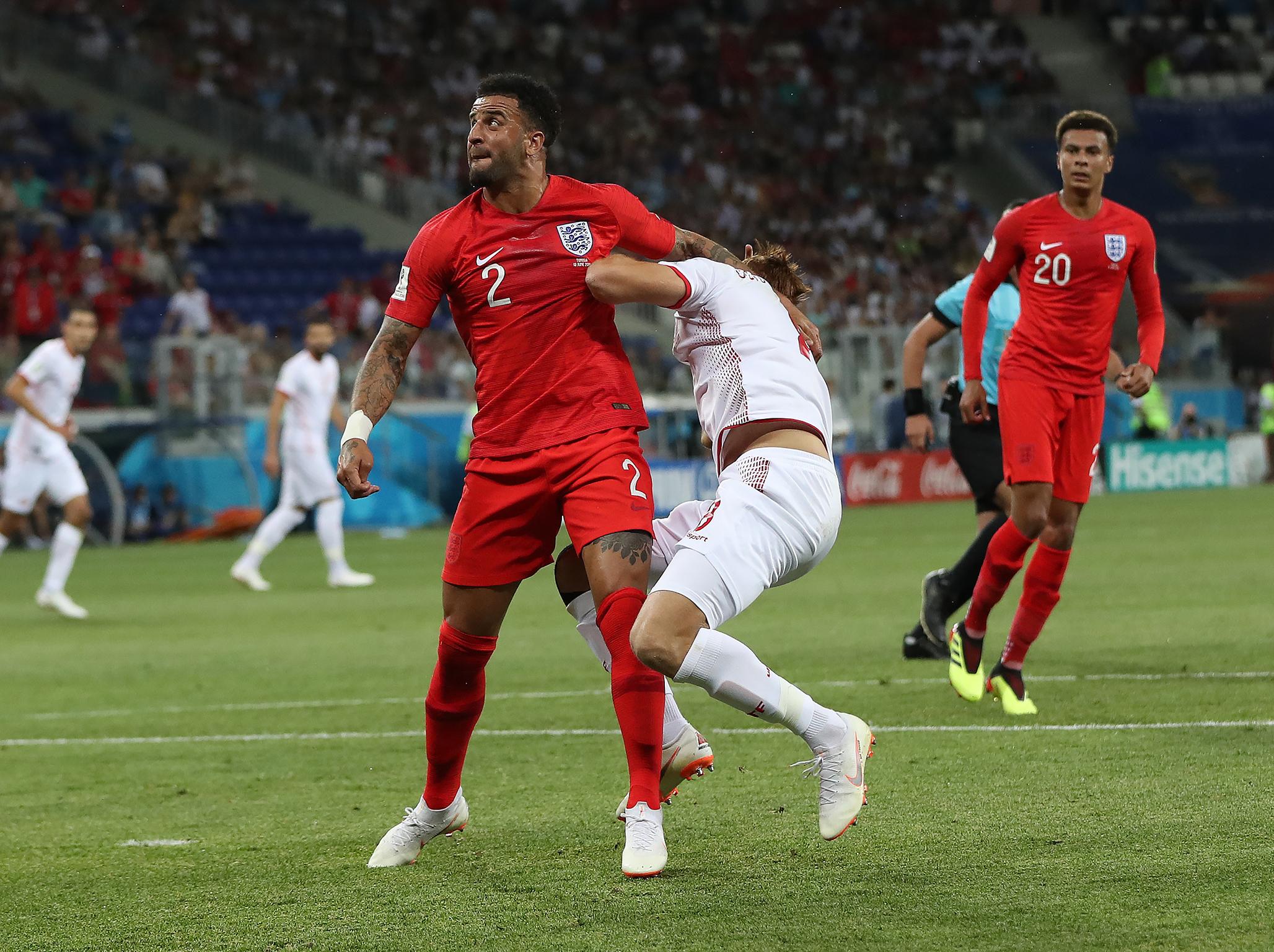World Cup 2018: England’s set-piece threat pays off with Harry Kane goals but does side lack cutting edge?
Tunisia 1-2 England: England won their opening World Cup match in Russia thanks to two poached goals by their talisman Harry Kane on his debut at the tournament

Your support helps us to tell the story
From reproductive rights to climate change to Big Tech, The Independent is on the ground when the story is developing. Whether it's investigating the financials of Elon Musk's pro-Trump PAC or producing our latest documentary, 'The A Word', which shines a light on the American women fighting for reproductive rights, we know how important it is to parse out the facts from the messaging.
At such a critical moment in US history, we need reporters on the ground. Your donation allows us to keep sending journalists to speak to both sides of the story.
The Independent is trusted by Americans across the entire political spectrum. And unlike many other quality news outlets, we choose not to lock Americans out of our reporting and analysis with paywalls. We believe quality journalism should be available to everyone, paid for by those who can afford it.
Your support makes all the difference.England won their opening World Cup match in Russia thanks to two poached goals by their talisman Harry Kane on his debut at the tournament.
The striker put England in front before Kyle Walker conceded a penalty which handed Tunisia a soft equaliser. But Kane popped up at the far post in added time to put a close-range header home and earn three points for Gareth Southgate’s team.
Here are five things we learned:
England’s shape
Gareth Southgate committed to three at the back 12 months ago and settled on his favoured 3-5-2 formation last December. England have not trained once with a back four in Russia – all their eggs were in this innovatively shaped basket.
On the basis of the opening 90 minutes of England’s World Cup campaign, Southgate made the right call. In Volgograd the system complemented their strengths, with Jesse Lingard and Dele Alli’s surges from midfield causing constant trouble, while Kieran Trippier and Ashley Young both offered threat from the wing-back positions.
Ultimately, the system brought three points. So often in major tournaments England have seemed restricted by the constraints of their formation and their attempts to find some balance. In Volgograd the setup seemed right – and the details in each penalty area then decided the outcome.
England lack a cutting edge...
OK, so Harry Kane is a walking, rippling personification of cutting edge. But in the rest of the ranks there are very few international goals, and that showed against Tunisia.
It would be understandable if Lingard was nervous. Like so many England players this was his first World Cup match and despite his age, 25, he is still relatively inexperienced. He snatched at several excellent chances in the first half, threatening with some but barely connecting with others.
Lingard has only scored once for England in 13 appearances, similar to Sterling’s disappointing record of two in 39, and with Alli looking short of full fitness for periods of the game, clutching at his hamstring, there was the distinct sense that this side is over-reliant on their talismanic captain.
...But they do carry aerial threat
For all England’s movement and slick football in the opening 45 minutes, they were at their most potent with the ball in the air. Harry Maguire and John Stones led their aerial threat while Trippier and Young delivered a series of teasers from corners and free-kicks.
Kane’s opening goal looked a little fortunate at first glance, falling at his feet, but it was one of several corners in which England’s cluster of four targets – Kane, Maguire, Stones and Henderson – dispersed into the box with purpose. Each time Kane attacked the far post, a logical ploy given his poaching instincts, so when the ball fell to the Tottenham goalscorer it was by design, not fortune.
His second was equally well planned, again drifting to the far post and getting on the end of Maguire’s flick. Practice makes perfect.
Defensive errors could be costly
England outplayed Tunisia, but defensive mistakes will be punished in major tournaments and that was the case here. Perhaps the decision was harsh on Walker, who was penalised for a wandering arm to gift Tunisia an equaliser, but that is the kind of error that World Cup winning defenders rarely make.

VAR ... again
Kane was wrestled to the ground on two occasions in the penalty area. Both seemed like certain penalties, yet neither were even referred down to the referee on the pitch from his VAR team. In the context of Tunisia’s soft penalty, they were poor decisions and throw a further spotlight on the inner workings of the needlessly complicated system.
Join our commenting forum
Join thought-provoking conversations, follow other Independent readers and see their replies
Comments